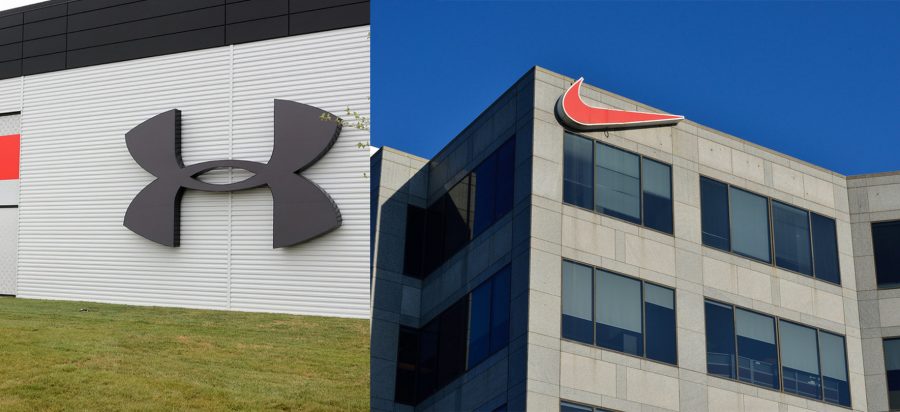On Oct. 21, Kevin Plank, Under Armour’s founder and chief executive announced that he would be stepping down as CEO after leading the company for more than 20 years. Shortly after, Nike made a similar announcement, saying Mark Parker would be getting replaced as CEO by John Donahoe.
Plank will be replaced by Patrick Frisk, who joined Under Armour in 2017 as the president and chief financial officer.
Though stepping down, Plank will still remain in the company in an executive position.
Plank founded Under Armour while he was in college while living in his grandmother’s basement. He was able to lead it into becoming a worldwide athletic brand, worth billions of dollars.
While the company has experienced success over the past decades since its foundation, it has been staying behind its main competitors like Nike, Adidas and Lululemon. In the last two fiscal years, the company made an estimated $46 million in sales compared to $5 billion in the fiscal year of 2017 to 2018.
Under Armour’s sales in 2018 reflected high numbers but the company also had $13 billion in leftover unsold merchandise, Business Insider reported. Plank focused on creating high performance products with advanced technology.
While it was a great selling point, it also played a part in the company’s current financial struggles, analysts said. Athletic lounge wear has become popular amongst shoppers while Under Armour has stayed behind its competitors.
The company came under fire last year when The Wall Street Journal published a story showing Under Armour’s employees, including Plank, going to a strip club and paying with corporate cards.
This only added more controversy the company had been facing about allegations from several women employees stating that there was inappropriate behavior against them.
Plank was also criticized for showing support toward President Donald Trump. His most recent scandal came after it was reported that Plank arranged to see Stephanie Ruhle, MSNBC anchor and asked for her business advice while inviting her to use his private jet, according to The Wall Street Journal.
In an interview with CNBC, Plank said the decision to step down as CEO was his own and that he thinks Frisk will do a great job. Together, they will be supporting each other in bringing the company more success.
Similar to Under Armour, Nike has faced a series of scandals this year. The biggest difference was that Nike’s sales only went up after each scandal and Parker remained in the company.
Since Parker became CEO in 2006, Nike has shown tremendous success with its stock almost doubling in the past three years and its revenue growing almost 7.5% to $39.1 billion as the company’s annual report indicated on May 2019, according to The New York Times.
Parker was able to lead Nike to expand in different markets such as China, where they have been rapidly growing in popularity over the past years.
He was also very effective in selling directly to consumers online and opening storefronts where people can buy Nike products directly from them.
John Donahoe will be taking the position as the new CEO of Nike in January 2020. He has been a board member of the company and a former CEO of both ServiceNow and eBay.
Donahoe is expected to continue leading Nike to focus its sales online and keep growing in different markets around the world. Parker will remain in the company as executive chairman.
All of the scandals surrounding Nike over the past years has shown no reaction from consumers or investors as Nike’s revenue has been growing at an unexpected rate. Nike has had a history of using controversies to boost its brand — and it has shown to be effective. As its latest quarterly report shows, Nike’s revenue jumped to $10.66 billion, $200 million higher than predicted by economists.
Many speculated the decision to replace Parker came after The New York Times reported that Parker was aware and supportive of a doping experiment being conducted by Alberto Salazar to enhance an athlete’s performance. Salazar was Nike’s lead coach in the Nike Oregon Project, a training group based at the company’s headquarters in Beaverton, Oregon.
Nike has also been accused of discriminating against women after some of the company’s sponsored women athletes came forward and exposed the threats the company had made to cut sponsorship money if they became pregnant.
While Nike has been trying to take small steps to change their toxic culture in the workplace and as a company, consumers continue to buy their product and keeping it as the leading athletic brand in the world.
Overall, the huge executive changes in leading sportswear companies were unexpected, and led to both positive and negative comments for the companies’ futures.







